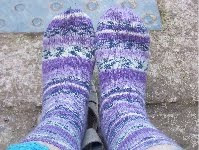The last few weeks I have been looking at the amount of resources used made of paper and how these could best be dealt with. Despite best efforts to stop junk mail and catalogues it became apparent that it still streams in the house.
- Mail gets opened near the paper recycling box and generally there is very little actual communication that needs a response.
- Inbox- I have set up rules for incoming emails so the important ones get directed to their named inbox and junk box. It means being less overwhelmed by the amount of messages in the IN box. Turned off the 'ping' when an email comes in so I am not tempted to an immediate response.
- Unsubscribe from emails you are not interested in.
- Do not create accounts when purchasing items online and do not give out your email address when asked in shops or create an alias email for that purpose which redirects immediately to junk email.
GOING PAPERLESS ON BILLS
- Bank statements and utility bills can now be received digitally as opposed to a paper copy.
- Try to find out which companies offer paperless billing and choose that option. It will reduce the mail being opened and also saves the company money.
- Set up a reminder monthly to check the digital bills and keep a copy on your computer. Mine are divided into business and private bills and accessible anytime.
LETTERS,RECEIPTS,OFFICIAL PAPERWORK
- Letters from Government agencies, receipts and official letters are quite often kept in a folder and in any case should be accessible for 7 years.
- To save them on a computer you will need a scanner. I save information in 3 places : computer, backup locally and a folder facility in the cloud.
- I am a fan of Evernote as my back up because since having a stroke I have difficulty finding things and the notes saved on Evernote allow them to be searched by any word, as well as being available on mobile phones so in essence you carry the ability to carry vital information with you wherever you are.
- Simple Life Together has a podcast episode six,dedicated to going paperless and Brooks Duncan has a whole website dedicated to going paperless.
- Vanessa Hayes has a big range of videos to help organize anything in your home but in particular an action file.
BOOKS AND MAGAZINES
- Books are available digitally as a direct download to an e reader or often as e-books which reduces the amount of book shelving space you need in your home.
- I like that idea a lot but often there are books I will refer to often and those I still like to have in a hard copy on the shelf.
- As far as magazines go, I am gradually changing any subscriptions to digital ones. Zinio have a great range of magazines and if you have an Ipad you carry with you a great amount of reading material.
- Cookery books and Craft Magazines are being revisited and the articles and recipes that are of interest are scanned in, using Evernote I can search for the recipe anytime. Many cookery books tell a story and are good companions for cooking seasonally.









